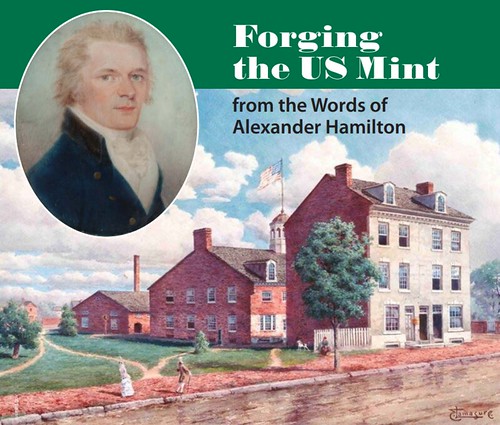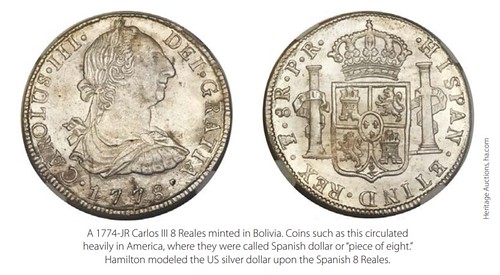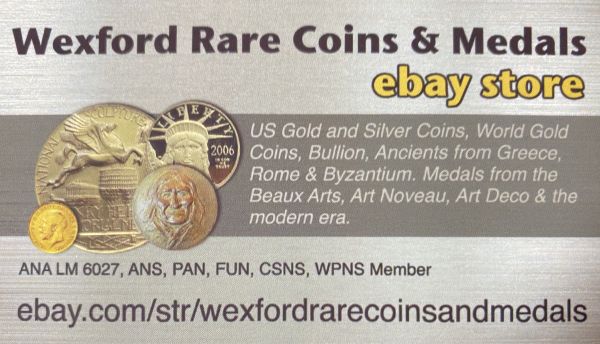
PREV ARTICLE
NEXT ARTICLE
FULL ISSUE
PREV FULL ISSUE
V25 2022 INDEX E-SYLUM ARCHIVE HAMILTON'S REPORT ON ESTABLISHMENT OF A MINTAn article by Eric Brothers in the Spring 2022 issue of Financial History from the Museum of American Finance is titled "Forging the US Mint From the Words of Alexander Hamilton." Here's an excerpt. -Editor
The coins that numismatists cherish
today are the result of the restless intellect
and tireless efforts of Treasury Secretary
Alexander Hamilton (1757–1804). He single-handedly embarked upon a financial
revolution that has greatly influenced the
US economy to this very day. An integral
element of that revolution was his
Early Plans for US Coinage
Financier Robert Morris put forth in Congress a plan for coinage and a mint in 1782,
though the specifics were formulated by his
assistant, Gouverneur Morris. Their plan
averaged the currency of 12 states into a
unit valued at 1/1440th of the Spanish dollar
and included coins in the denomination of
5, 8, 100, 500 and 1,000 units. In response
to Morris, Thomas Jefferson authored
his
Hamilton's Report
Hamilton's Report was an ambitious undertaking. In his introduction, he presented the myriad complexities involved in conceiving and developing a national mint from scratch. He wrote: A plan for an establishment of this nature involves a great variety of considerations…. The general state of Debtor and Creditor; all of the relations and consequences of price; the essential interests of trade and industry; the value of all property; the whole income both of the State and of individuals are liable to be sensibly influenced, beneficially, or otherwise, by the judicious, or injudicious regulation of this interesting topic.
The Report is a verbose, complex work
that is essentially a lecture that was written down. Hamilton proposed a question,
vis-à-vis the existing monetary system in
the United States,
Answering his own question, Hamilton
cited
The Report also discusses the
The Secretary discussed challenges
inherent in forging a national mint,
concluding,
To read Hamilton's Report, see:
To read Jefferson's Notes, see:
To read the complete issue and article, see:
For more information on the Museum of American Finance, see:
Wayne Homren, Editor The Numismatic Bibliomania Society is a non-profit organization promoting numismatic literature. See our web site at coinbooks.org. To submit items for publication in The E-Sylum, write to the Editor at this address: whomren@gmail.com To subscribe go to: https://my.binhost.com/lists/listinfo/esylum All Rights Reserved. NBS Home Page Contact the NBS webmaster 
|


